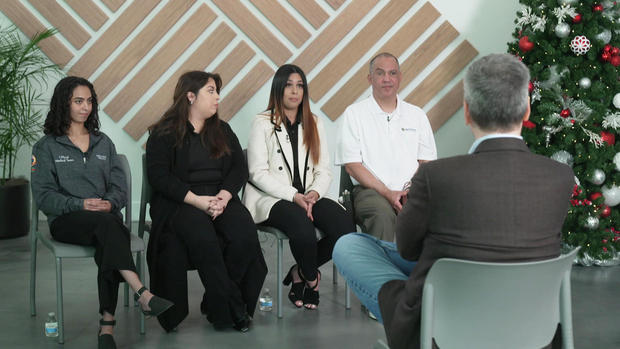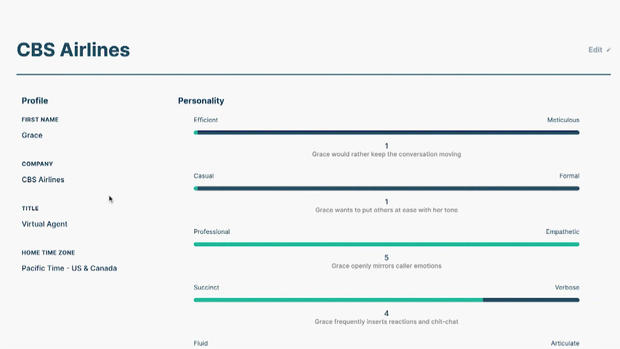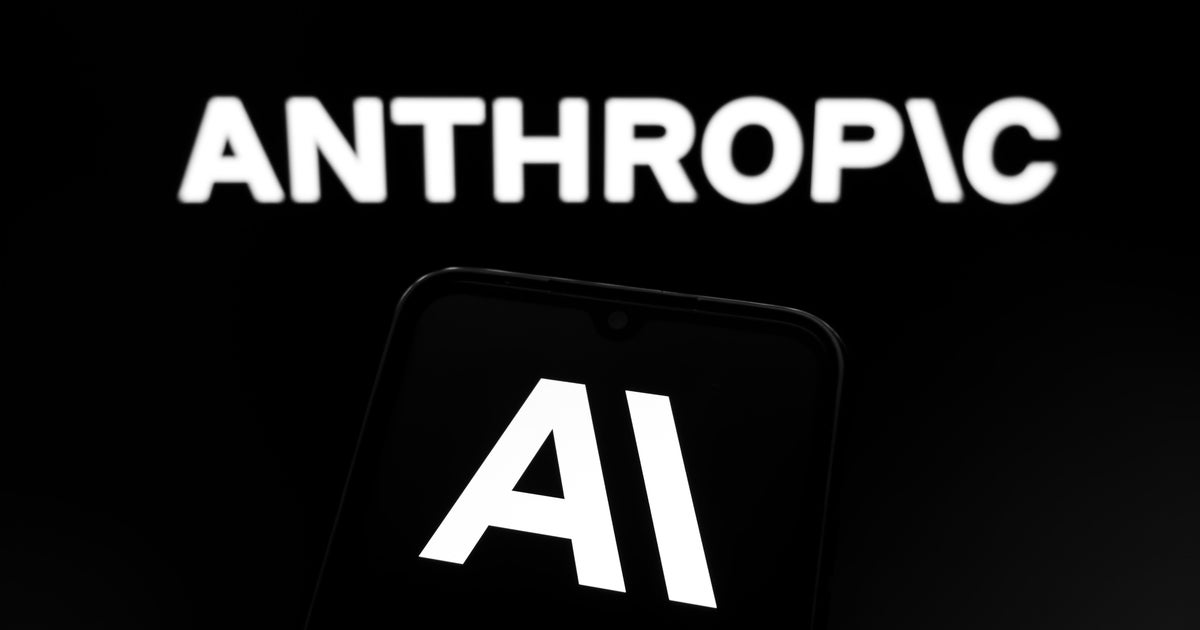"Your call is very important to us." Is it, really?
Customer service has become a huge problem in this country. Just ask … literally anyone. But why is customer service so bad?
First of all, labor shortage. Especially since the pandemic, it's hard to find people to fill these jobs. The average call-center worker quits after 18 months.
Then there's consolidation. Corporate mergers of airlines, banks, telecom companies and cable companies mean less competition, so they have less incentive to fix the problems.
So, what happens? You get a lot of unhappy customers, or worse.
"We're sorry, we don't have anybody right now to answer your call. Please call back another time."
If it's any consolation, there is a group people who may be even more frustrated with the customer service system than customers are. And that's the customer service agents.
Domonique Raymond, Kayla Zuniga, Gineris Ortiz and Calvin Echevarria work in customer support for health companies and patient advocacy nonprofits in Orlando. They sat down with "Sunday Morning" to talk about what it's like to talk with customers on the phone.
"They see you as part of the organization that's imposing the issue, rather than a human being," said Raymond.
"Believe it or not, I've had somebody curse me out completely," said Ortiz.
Zuniga said, "They can't see you. They're just over the phone. So, they take advantage of that."
Echevarria said, "They call with their frustrations. They don't understand the procedures. They have been told 'no' multiple times."
"And sometimes that brushes off on me – I'm frustrated, too! I wanna help you out," said Ortiz. "[But] I feel like I'm gonna get in a state where I'm sweating."
Turnover in call center work is reportedly more than double the average of other jobs. Raymond understands why: "I think it's hard. They're not necessarily looking for a resolution. They're looking to vent. So yeah, that can be kind of difficult, and taxing."
"Customer service," Echevarria said, "is not easy. It's not made for everyone."
So, if the job can be so hard, why do they do it? According to Raymond, call center work has many redeeming qualities: "It's very mentally stimulating, because every day is a new challenge or a new experience."
"The beauty of it, honestly to me, is to help out," said Ortiz. "It brings me joy. Sometimes I cry with the patient, I'm so excited to actually help someone out."
And so, for years, that's how things have stood: Two frustrated armies of people, on opposite ends of the line, each frustrated by a dysfunctional underfunded system.
Until this happened: "My name is Grace. I'm a virtual front-desk agent. What can I help you with today?"
Welcome to the new age of artificial intelligence customer service. Grace, an AI phone rep created by Gridspace, is currently being used by more than 100 hospital chains, airlines, phone companies and banks to take customer calls.
The bot even has "personality sliders" which can be adjusted, to shift how much empathy or emotion the bot should express.
"It doesn't sound like you're talking to a robot," said Gridspace co-founder Anthony Scodary. "You hear the ums and uhs, and all the imperfections that indicate that someone is listening. If you have a system that feels like it's listening to you and doesn't make you restate yourself, it's much less frustrating."
So, how does Grace make life easier for humans at the call center? "Well, that's a really hard job; it's just people yelling at you all day," Scodary said, "And so, one way Grace can help is by being kind of a bit of a blast shield. First someone calls in, they state their intent, they complain. The bot tries their best to help them. And then the person can kind of come in as the hero. That's, in general, how automation really helps people – it enables people to do the stuff that people are best at.
"But then, for the other 90 percent of calls, where people are calling in with password reset, password reset, password reset or whatever, Grace can just deal with that."
Gridspace set up a fake airline 800 number so I could witness, first-hand, how Grace hands you off to a human when the problem requires creativity.
Grace: Thanks for calling CBS Airlines.
Pogue: Um, I have a service animal. Can I bring my service animal?
Grace: Yes, you are allowed, um, to bring your service animal on board.
Pogue: Okay. It is a tiger. Is that okay?
Grace: I'm sorry, but I, um, don't have any information about bringing a tiger as a service animal. I'd be happy to transfer you to an agent.
Nico Benitez, another cofounder of Gridspace, said, "If there's no policy about tigers, she's not gonna invent one. Unrestrained AI acting as a representative of your company can get you in a lot of trouble. And so, we would rather err on the side of being real, by-the-book, real literal."
Meanwhile, Grace offers another benefit to us puny humans: Much less sitting on hold. She can answer many calls simultaneously.
A fascinating concept, but not everyone is sure that AI is the answer.
According to Domonique Raymond, "It seems like you lose that connection, that ability to make that good first impression and to connect with the patient right off the bat. It seems impersonal."
Gineris Ortiz said, "I love the fact that we can actually be their live agents. You can't do that with AI."
Plenty of companies are working on AI customer-support systems like Grace. But until they become widespread and reliable, most of the people answering your calls will still be people.
Raymond said, "We get them at their worst, but then also at times when you can pivot and recover that situation, you then get them at their best and their most grateful."
Kayla Zuniga said, "They'll write your name down just to say, 'Hey, like, I wanna let your supervisor know that you helped me. And even though I started yelling at you from the beginning, it was not your fault, you assisted me and you never hung up on me.'"
So, you forgive customers their anger?
"No need to forgive," said Gineris Ortiz. "There's no forgiving. I don't take that personal. You just needed somebody to listen to you."
For more info:
- Gridspace
- National Customer Service Association
- The Assistance Fund
- Orlando Health
- Lighthouse Central Florida
Story produced by Amol Mhatre. Editor: Remington Korper.






